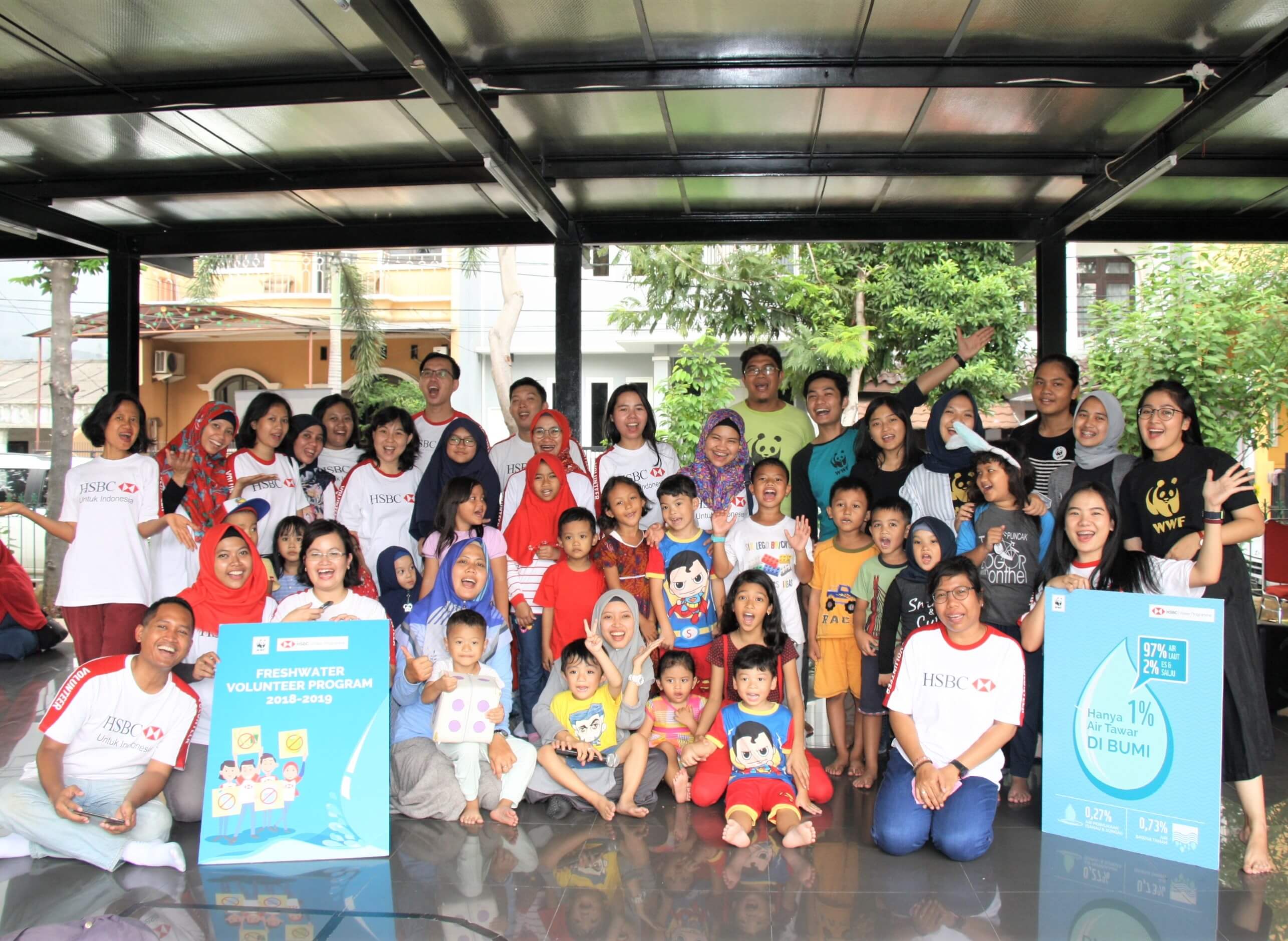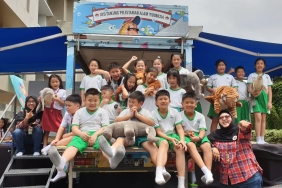PANDA MOBILE AND HSBC VOLUNTEER INVITE COMMUNITIES TO TAKE CARE OF CLEAN WATER
By: Sani Firmansyah
The ever-increasing population growth causes higher water use. The large demand for water is not in line with the management of waste water, so that the quality of clean water is decreasing. In fact, if the water is polluted and reaches human consumption, it is clear that it will cause various kinds of diseases, and it does not rule out the cause of death. Based on data, as many as 1.7 million children die from diarrhea every year due to an unhealthy environment.
Maintaining the quality of clean water is our collective responsibility. So, on Saturday (09/02) the Engagement Activation Team through Panda Mobile collaborated with HSBC to educate the public about the importance of maintaining clean water. This time, the center of the crowd is RPTRA(Child Friendly Integrated Public Space) Dewi Shinta located in Kelapa Gading, Central Jakarta.
This event attracted the attention of both parents and children. The activity begins with ice breaking which invites all participants to dance A Ram Sam Sam to raise their spirits. "Come on everyone, let's move our bodies so we can be more enthusiastic!" shouted Adit, one volunteer HSBC.
Furthermore, all participants were invited to listen to a fairy tale that tells the story of a Sumatran elephant looking for clean water. "Right now I'm having a hard time finding clean water in the forest, because a lot of trees are cut down so that the river water becomes less," said Kak Ryan when telling a story. "But I believe WWF-Indonesia will make forests and the environment better, because they try to replant trees," continued Sis Ryan. 'Enchanted' by the fairy tales conveyed by Kak Ryan, all participants seemed to nod at every message conveyed.
The next activity was watching the film The Adventures of Banyu in the World of Water. The participants were invited to see the process by which water occurs from the beginning all the way to the taps in homes. "Then, can anyone retell the process of creating clean water?" asked Feby, one of HSBC volunteers. This question was greeted by a RPTRA visitor named Andika. He explained, “Initially the sea water which evaporated due to the heat of the sun became clouds, then the clouds were blown by the wind to the forest, then it rained. The water that descends absorbs into the ground, with the help of tree roots the water is naturally filtered and finally we take it from the well at our house.” It seems that the audience can listen to the message conveyed through the film well.
After the watching program was over, the next session was water quality testing with mini waterlab owned by Panda Mobile WWF-Indonesia. The water used for testing comes from around RPTRA. "Here, from our observations, it appears that there are germs in the tap water that has been collected, so you shouldn't drink raw water, it's better to boil it first," said Nita, volunteer Panda Mobile WWF-Indonesia. Furthermore, one of HSBC's volunteers, Jurni Watika explained three main criteria for clean water. "No smell, no taste, and no color," he said.
This activity ended by playing games with the children who visited the RPTRA. "This is a very positive activity, it can add to our collective concern for maintaining clean water and the environment," said Dwi RPTRA manager Dewi Shinta, Kelapa Gading. Meanwhile, Rizal, one of the RPTRA visitors, expressed the importance of environmental education as early as possible. "Easy access to information at this time does not necessarily make children know how to protect the environment in a simple way," he said. This means that educational activities in public spaces are needed to make people aware of the importance of water and environmental sustainability.





